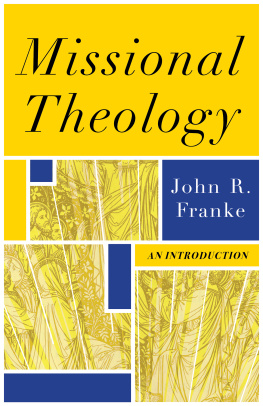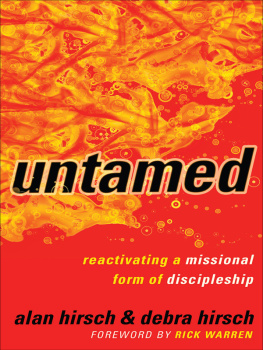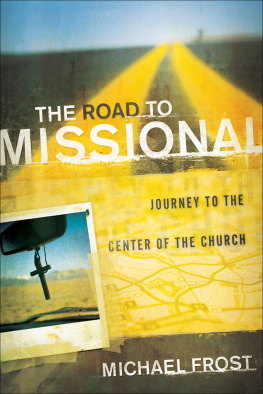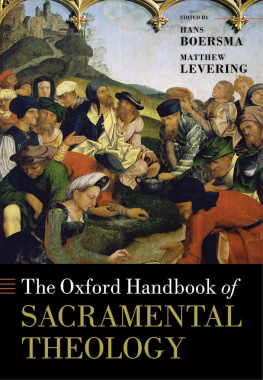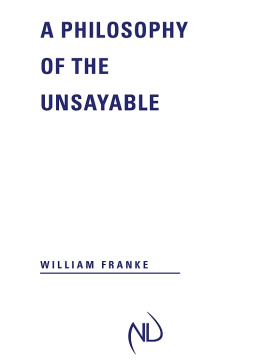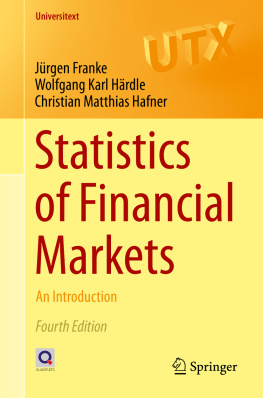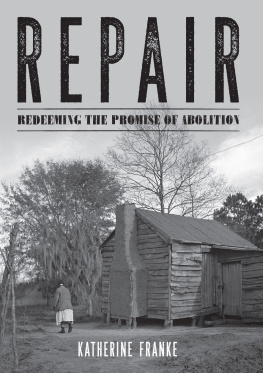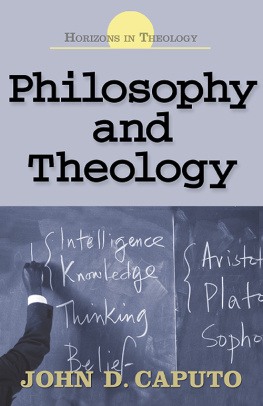John R. Franke - Missional Theology: An Introduction
Here you can read online John R. Franke - Missional Theology: An Introduction full text of the book (entire story) in english for free. Download pdf and epub, get meaning, cover and reviews about this ebook. year: 2020, publisher: Baker Publishing Group, genre: Religion. Description of the work, (preface) as well as reviews are available. Best literature library LitArk.com created for fans of good reading and offers a wide selection of genres:
Romance novel
Science fiction
Adventure
Detective
Science
History
Home and family
Prose
Art
Politics
Computer
Non-fiction
Religion
Business
Children
Humor
Choose a favorite category and find really read worthwhile books. Enjoy immersion in the world of imagination, feel the emotions of the characters or learn something new for yourself, make an fascinating discovery.
- Book:Missional Theology: An Introduction
- Author:
- Publisher:Baker Publishing Group
- Genre:
- Year:2020
- Rating:3 / 5
- Favourites:Add to favourites
- Your mark:
- 60
- 1
- 2
- 3
- 4
- 5
Missional Theology: An Introduction: summary, description and annotation
We offer to read an annotation, description, summary or preface (depends on what the author of the book "Missional Theology: An Introduction" wrote himself). If you haven't found the necessary information about the book — write in the comments, we will try to find it.
Missional Theology: An Introduction — read online for free the complete book (whole text) full work
Below is the text of the book, divided by pages. System saving the place of the last page read, allows you to conveniently read the book "Missional Theology: An Introduction" online for free, without having to search again every time where you left off. Put a bookmark, and you can go to the page where you finished reading at any time.
Font size:
Interval:
Bookmark:
The magnificence of John Frankes work in this volume is that what he gathers up from a range of voices has become in his hand a virtual manifesto. With depth and breadth, he develops what a missional approach to theology looks like. His own constructive work provides a clear and compelling agenda for all to follow. This book is of major importance for both church and academy.
George R. Hunsberger , Western Theological Seminary, Holland, Michigan (emeritus)
For anyone who wants an excellent introduction to missional theology, its beginnings, its theological and biblical underpinnings, as well as insights regarding its future relevance for the church and the world, this volume is a must-read. Franke offers those new to the missional conversation and those well acquainted with it opportunities to deeply reflect upon and engage (again) the missio Dei what it has meant for missional theology in the past, including its disastrous interpretations due to whiteness and white supremacy, what it means in the present, and its possibilities for the future as the missional theology movement decenters those with power, widens the circle of voices in the conversation, and comes prepared to listen rather than to speak.
Lisa Bowens , Princeton Theological Seminary
Just as missional theology is getting hijacked to further pragmatic church growth efforts, Franke provides this outstanding text that encapsulates his previous work while pressing this theological conversation forward. Missional Theology is accessible, scholarly, and well-balanced in focus. It should be required reading for anyone invested in Gods kingdom, where everyone has enough and no one is afraid.
Drew G. I. Hart , Messiah University; author of Who Will Be a Witness? Igniting Activism for Gods Justice, Love, and Deliverance
Frankes Missional Theology equal parts invitation and manifestoarticulates a revolutionary and profoundly life-giving vision of the nature and task of Christian theology. Building on critical areas of theological and missiological consensus, Franke offers a well-reasoned, accessible, and potentially paradigm-shifting argument for a postmodern and postcolonial understanding of missionrooted in the very nature of Godas the sine qua non for theological reflection. This thoroughgoing revisioning of mission will challenge those who understand mission primarily in terms of evangelism and global outreach as well as those who find missional language to be hopelessly contaminated by Western imperialism and notions of cultural and religious supremacy. Faithfully biblical, inherently ecumenical, and deeply attuned to what the God of all diversity is doing in the world, Missional Theology merits a wide readership in churches and theological classrooms.
Michael Barram , Saint Marys College of California; author of Missional Economics: Biblical Justice and Christian Formation
Franke has emerged as one of the second-generation leaders of missional theology. He builds on his teachers core commitment that the discipline flows out of systematic theology as well as historical and biblical studies. But as this book demonstrates, he is now bringing missional theology more deeply into congregational life and ministry. This is a much-needed next step for the discipline that could have been provided only by a scholar with the heart of a pastor.
M. Craig Barnes , Princeton Theological Seminary
2020 by John R. Franke
Published by Baker Academic
a division of Baker Publishing Group
PO Box 6287, Grand Rapids, MI 49516-6287
www.bakeracademic.com
Ebook edition created 2020
All rights reserved. No part of this publication may be reproduced, stored in a retrieval system, or transmitted in any form or by any meansfor example, electronic, photocopy, recordingwithout the prior written permission of the publisher. The only exception is brief quotations in printed reviews.
Library of Congress Cataloging-in-Publication Data is on file at the Library of Congress, Washington, DC.
ISBN 978-1-4934-2704-8
Scripture quotations are from the New Revised Standard Version of the Bible, copyright 1989 National Council of the Churches of Christ in the United States of America. Used by permission. All rights reserved.
To Darrell Guder and George Hunsberger,
friends and mentors in missional theology
Cover
Endorsements
Title Page
Copyright Page
Dedication
Preface
1. Missional God
2. Missional Church
3. Missional Theology
4. Missional Multiplicity
5. Missional Solidarity
Epilogue
Index
Back Cover
This volume marks both a conclusion and a beginning. As a conclusion, it is the culmination of over a decade of thinking, speaking, and writing on the idea of missional theology. In that time, I have had the opportunity to teach and lecture on the topic at seminaries, colleges, and churches throughout North America as well as other parts of the world. I have experienced firsthand the confusion and misunderstanding that exists among students, church leaders, and the congregations they serve about the term missional and its relationship to the church and theology. I have also seen the interest and enthusiasm that emerges when the ideas of missional theology are more clearly grasped and applied to the understanding and practice of Christian witness.
In addition to teaching, I have written on various aspects of missional theology in several books and articles over the years. These include (in chronological order):
Christian Faith and Postmodern Theory: Theology and the Nonfoundationalist Turn. In Christianity and the Postmodern Turn , edited by Myron B. Penner, 10521. Grand Rapids: Brazos, 2005.
The Character of Theology: An Introduction to Its Nature, Task, and Purpose . Grand Rapids: Baker Academic, 2005.
God Is Love: The Social Trinity and the Mission of God. In Trinitarian Theology for the Church: Scripture, Community, Worship , edited by Daniel J. Treier and David E. Lauber, 10519. Downers Grove, IL: InterVarsity, 2009.
Manifold Witness: The Plurality of Truth . Nashville: Abingdon, 2009.
Intercultural Hermeneutics and the Shape of Missional Theology. In Reading the Bible Missionally , edited by Michael W. Goheen, 86103. The Gospel and Our Culture Series. Grand Rapids: Eerdmans, 2016.
Contextual Mission: Bearing Witness to the Ends of the Earth. In Four Views on the Mission of the Church , edited by Jason Sexton, 10733. Grand Rapids: Zondervan, 2017.
Missional Theology: Living Gods Love. In Evangelical Theological Method: Five Views , edited by Stanley E. Porter and Steven M. Studebaker, 5272. Downers Grove, IL: IVP Academic, 2018.
This volume brings together material from all these books and essays and expands on them to provide (I hope) a clear introduction to missional theology and its basic themes. Thanks to the publishers of these pieces for granting permission to reproduce parts of them in this volume.
I intend for this volume to serve as a launching point for further explorations in missional theology, an emerging discipline that works at the intersections of practical theology, missiology, and systematic theology in the service of congregational formation for witness. In contrast to those who believe the missional turn was merely a passing fad, I believe the serious theological, hermeneutical, spiritual, and ecclesial revolutions spawned by this conversation have just scratched the surface of their potential. Much more work needs to be done.
For this work to bear the fruit of more informed and faithful witness to the purposes of God in the world, it needs to take root in the life and ministry of local congregations. To that end, I have worked to make this volume as accessible as possible to those who are joining this conversation for the first time, particularly those engaged in, or preparing for, congregational leadership and ministry. Much more can be said on every topic discussed in the book, but in the interest of brevity I resisted the impulse to do so.
Font size:
Interval:
Bookmark:
Similar books «Missional Theology: An Introduction»
Look at similar books to Missional Theology: An Introduction. We have selected literature similar in name and meaning in the hope of providing readers with more options to find new, interesting, not yet read works.
Discussion, reviews of the book Missional Theology: An Introduction and just readers' own opinions. Leave your comments, write what you think about the work, its meaning or the main characters. Specify what exactly you liked and what you didn't like, and why you think so.

